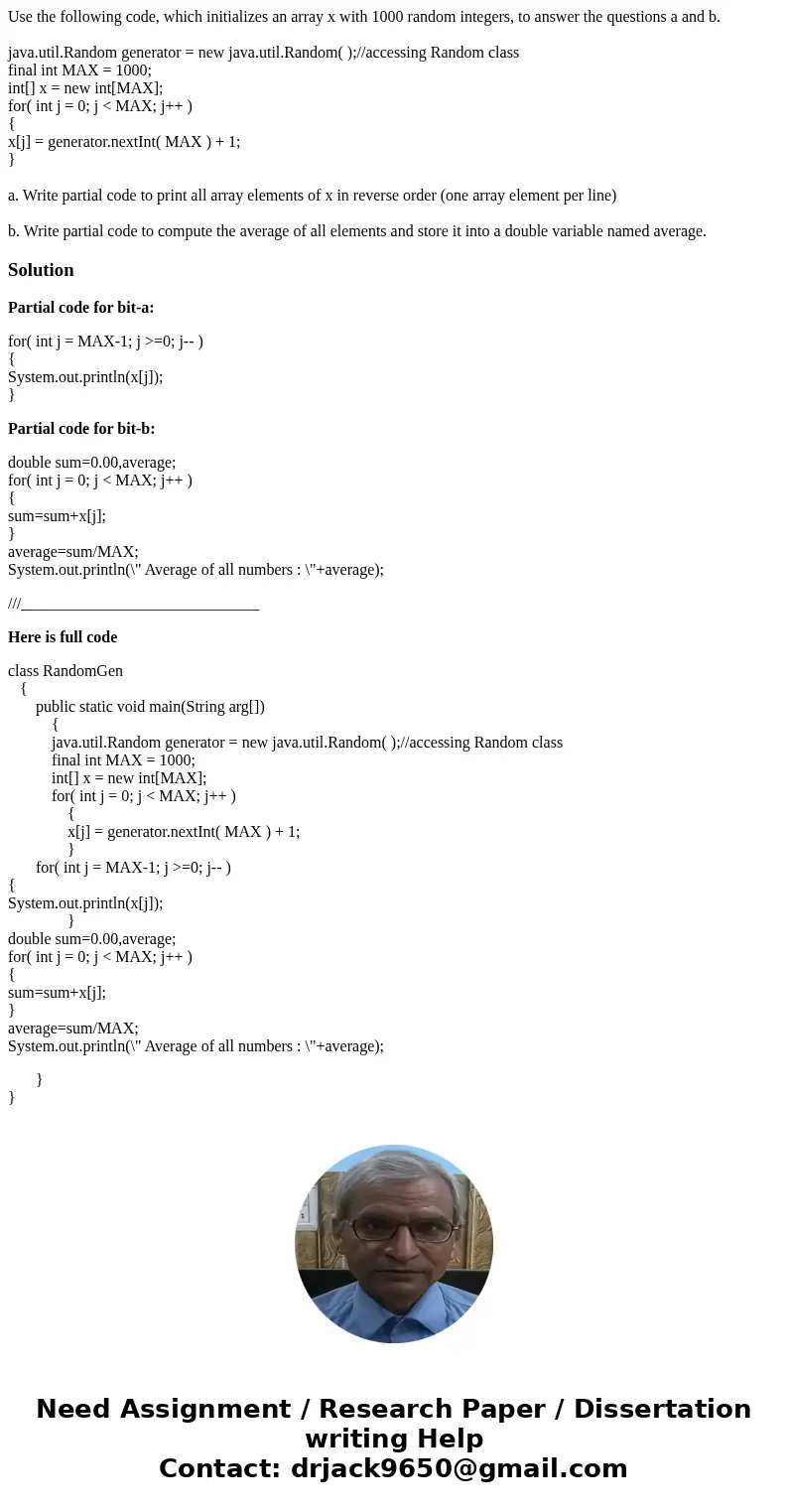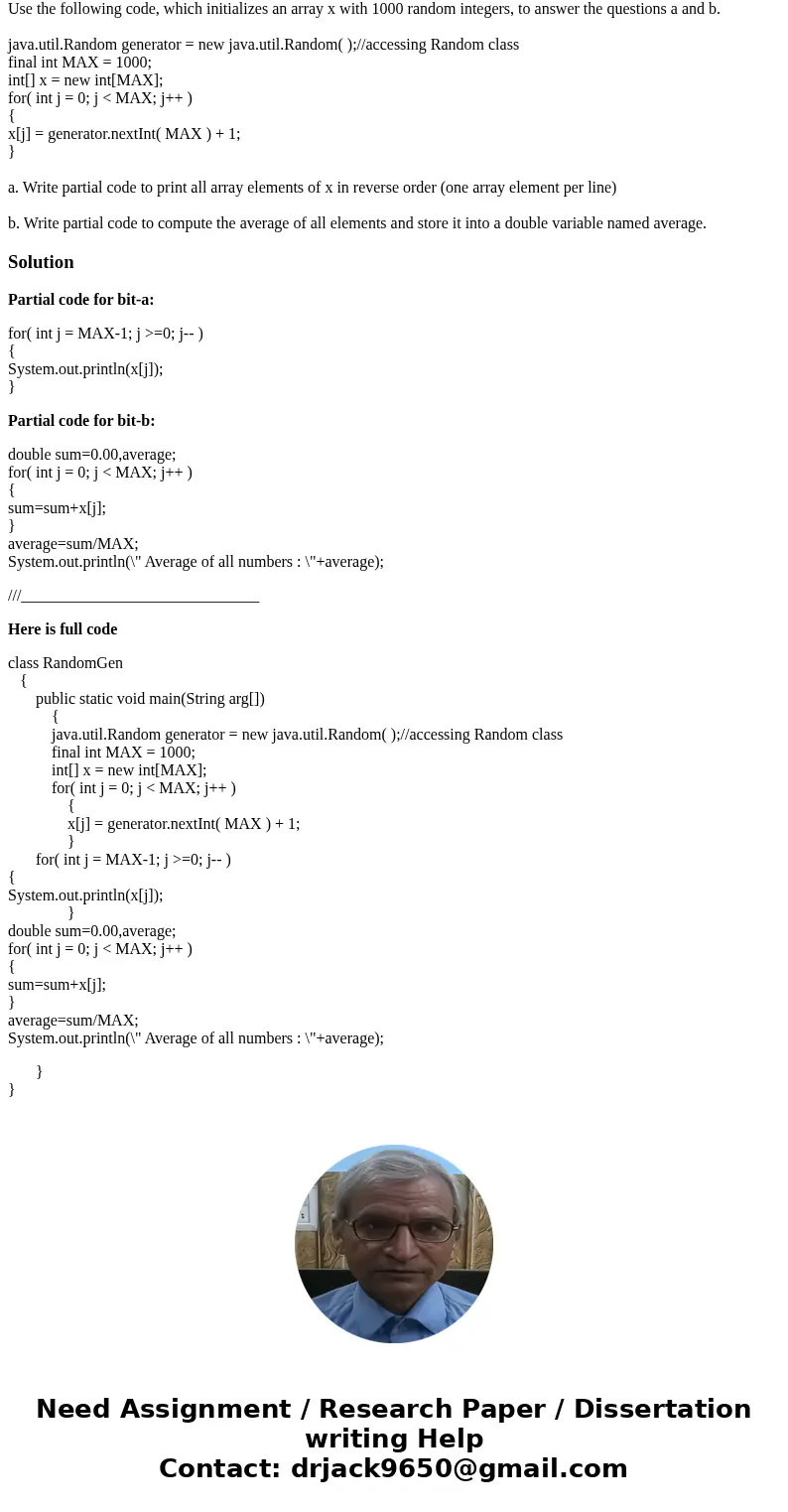Use the following code which initializes an array x with 100
Use the following code, which initializes an array x with 1000 random integers, to answer the questions a and b.
java.util.Random generator = new java.util.Random( );//accessing Random class
final int MAX = 1000;
int[] x = new int[MAX];
for( int j = 0; j < MAX; j++ )
{
x[j] = generator.nextInt( MAX ) + 1;
}
a. Write partial code to print all array elements of x in reverse order (one array element per line)
b. Write partial code to compute the average of all elements and store it into a double variable named average.
Solution
Partial code for bit-a:
for( int j = MAX-1; j >=0; j-- )
{
System.out.println(x[j]);
}
Partial code for bit-b:
double sum=0.00,average;
for( int j = 0; j < MAX; j++ )
{
sum=sum+x[j];
}
average=sum/MAX;
System.out.println(\" Average of all numbers : \"+average);
///______________________________
Here is full code
class RandomGen
{
public static void main(String arg[])
{
java.util.Random generator = new java.util.Random( );//accessing Random class
final int MAX = 1000;
int[] x = new int[MAX];
for( int j = 0; j < MAX; j++ )
{
x[j] = generator.nextInt( MAX ) + 1;
}
for( int j = MAX-1; j >=0; j-- )
{
System.out.println(x[j]);
}
double sum=0.00,average;
for( int j = 0; j < MAX; j++ )
{
sum=sum+x[j];
}
average=sum/MAX;
System.out.println(\" Average of all numbers : \"+average);
}
}


 Homework Sourse
Homework Sourse